- Could you please tell us the preliminary results of Hanoi City in implementing Resolution 57-NQ/TW up to this point?
- On May 15, 2025, the Standing Committee of the Hanoi Party Committee issued Decision No. 8602-QD/TU, updating the Action Plan to implement Resolution No. 57-NQ/TW of the Politburo . This is not only the concretization of the Central's policy, but also demonstrates the high political determination of Hanoi city in taking science, technology, innovation and digital transformation as the driving force for breakthrough development.
The plan aims to make Hanoi a leading center for scientific research, technology development and innovation in Vietnam by 2030, essentially becoming a smart city, connected to the global smart urban network. By 2045, Hanoi aims to become a leading center of science and technology in Asia, leading the knowledge economy and innovation in the region.
Then, on May 16, 2025, the City People's Committee issued Plan No. 139/KH-UBND to implement Resolution 71/NQ-CP of the Government and the Action Plan of the City Party Committee. This is a close connection between the Central's strategic direction and specific actions of the locality. With these two important plans, Hanoi demonstrates thorough and comprehensive preparation to realize the aspiration of becoming a leading innovation center and smart city in the region, strongly contributing to the sustainable development of the country.
 |
| Mr. Truong Viet Dung, Vice Chairman of Hanoi People's Committee |
On September 29, 2025, at the 26th session (special session), the People's Council passed a series of 6 Resolutions related to science, technology and innovation development, which the City's specialized agencies are consulting on, creating a flexible legal corridor for the development of new technologies, new models and new products.
The city has directed agencies to promote flexible and diverse propaganda through conferences, training sessions, party cell meetings, press and social media communications. At the same time, the "Digital Education for All" Movement was launched on May 22, 2025 with the goal of "Hanoi City - Digital Education for All - All People, Comprehensive, Firmly Entering the New Era".
Many specific models such as “Digital Citizen”, “Market 4.0”, “Online Public Services” have brought practical benefits, helping people clearly experience the results of digital transformation. At the same time, Hanoi has linked propaganda with international events such as World Creativity and Innovation Day, World Intellectual Property Day, Vietnam Science and Technology Day, contributing to creating a widespread “digital culture”.
At the same time, the City's agencies and units actively apply AI in work and management. Continue to effectively exploit the City's shared information systems to serve the direction, administration, and service of people and businesses such as: Document management and operation system, Administrative procedure information system, Email system... Thereby, effectively exploit the City Data Center, form a Smart Operation Center and deploy the establishment of the City's Innovation Center.
In addition to public capital, Hanoi also advocates expanding public-private partnerships (PPP) in digital infrastructure projects, shared laboratories, business incubators and open innovation spaces, thereby mobilizing social resources and increasing investment efficiency.
Implement the Central Government's policies and guidelines on science, technology development, innovation and national digital transformation, focusing on Resolution No. 57-NQ/TW and Resolution No. 71/NQ-CP, including tasks on the 3-party cooperation model (State - School - Investor) to form a closed innovation ecosystem. In which, the State plays the role of policy creation, creating a favorable legal corridor; universities and research institutes are responsible for human resource training and applied research; and businesses and investors are responsible for commercialization and bringing products to market. This model helps connect knowledge with production practices, while creating a driving force for sustainable development, spreading the spirit of creative entrepreneurship in society.
In the field of investment attraction and high-tech development, the City actively proposed to perfect the incentive mechanism for Hoa Lac High-Tech Park, promote the increase of budget regulation rate, build models of science and technology urban areas, and develop shared laboratories.
In addition to the specific policies in the Capital Law, the City People's Committee has sent a document to the Ministry of Science and Technology to propose specific and outstanding policy mechanisms to develop high-tech zones: Amending and supplementing laws (High Technology, Land, Enterprises, Taxes, Housing, etc.) to remove obstacles and allow the City People's Council to issue specific and outstanding mechanisms; developing railway line No. 5 Van Cao - Hoa Lac, Hoa Lac dual-use airport, TOD connecting metro stations; increasing the retained budget ratio according to Article 34 of the Capital Law to invest in high-tech zone infrastructure; prioritizing the relocation and arrangement of universities and research institutes in Hoa Lac to form a science and technology ecosystem...
Hanoi also proactively proposed amendments to legal regulations and policy mechanisms to create a "green channel" for investment and innovation, gradually turning institutions into a truly competitive advantage in the development of the capital.
These moves have helped Hoa Lac attract more than 110 projects, with a total capital of over VND115,000 billion and have basically completed the technical infrastructure of the Hanoi IT park in Long Bien district. The deployment of 5G and IoT infrastructure in industrial parks and industrial clusters continues to be promoted, affirming the growing attractiveness of Hanoi in the eyes of technology investors.
- Although the city has abundant budget revenue, Hanoi's difficulties are more complicated than other localities. Sir, what are the obstacles in Hanoi's digital transformation that cannot be resolved immediately if we rely purely on financial strength?
The direction of digital transformation is implemented synchronously from the Resolution of the City Party Committee, the master plan on digital transformation, building a smart city, especially in 2025, the task of digital transformation is thoroughly understood by Party committees at all levels from the Central to local levels as one of the three important groups of tasks, top priority in Resolution 57-NQ/TW dated December 22, 2024 of the Politburo on "Breakthrough in science and technology development, innovation and national digital transformation" and is directed resolutely and synchronously in the City.
Hanoi City, with its unique characteristics of being a place where the "elite" class in the fields of science - technology, information technology, financial technology (FINTECH)... gathers, so we will strive to promote favorable conditions to promote the digital transformation process.
Besides the achieved results, the implementation of digital transformation in Hanoi is currently facing many difficulties and challenges that need to be promptly overcome to ensure effectiveness.
Before the time of the 2-level local government arrangement, according to regulations, the Departments of Culture and Information of 30 districts were assigned a number of job positions to perform the state management function of digital transformation, information technology application, e-transactions, digital economy, digital society, but had to concurrently take on other specialized tasks (due to lack of civil servants); some districts did not have staff with expertise in information technology, while the volume of tasks, quality requirements, and progress were increasing, greatly affecting the advisory work.
After the arrangement, district and county officials were assigned to 126 communes, wards, and commune-level Cultural and Social Departments assigned to perform state management functions and tasks on digital transformation and information technology application (excluding information security and network security)... according to the provisions of Decree 150/2025/ND-CP, Circular No. 10/2025/TT BKHCN, leading to a shortage of IT specialists.
That is not to mention the fact that some information systems and specialized databases of ministries and branches are not ready to connect and share data with the City's administrative procedure settlement information system.
Another problem is that the City's administrative procedure settlement information system, which will be implemented from July 1, 2025, has many shortcomings such as: the list and procedures for settling administrative procedures according to the 2-level local government model have not been fully updated; the delegation of authority to officials is not accurate, causing backlog and incorrect processing of records; and it has not been connected to a number of specialized databases (land, tax, etc.), causing difficulties in data interconnection.
In addition, the digital transformation tasks of some units are behind schedule; the reporting of some focal units on the results of digital transformation implementation is incomplete, affecting the synthesis and general reporting work.
-At the recent meeting on administrative procedures in Hanoi (August 5, 2025), you mentioned one of the aspects of the problem is coordination between units. Does this issue reflect the reality that many agencies in Hanoi have not kept up with the digital transformation process, sir?
-Digital transformation plays an important role in ensuring the smooth operation of 16 two-level government models in the first phase with careful preparation from planning, implementation options, operating scenarios of digital infrastructure, data sharing platforms, information systems, applications and shared platforms of the City along with the dedication and responsibility of the technical staff and IT specialists in all units. The City identifies this as not only a support tool but also a foundation for creating a government close to the people, for the people, transparent and effective.
The two-level government model officially came into operation from July 1, 2025. As mentioned above, after the arrangement, some information systems and specialized databases of ministries and branches were not ready to connect and share data with the City's administrative procedure settlement information system, leading to many shortcomings such as: the list and procedures for handling administrative procedures according to the two-level local government model were not fully updated, the delegation of authority to officials was not accurate, causing backlog and incorrect processing of records; not connected with some specialized agencies (land, tax...), causing difficulties in data interconnection.
Recently, at the meeting on administrative procedures in Hanoi, I also pointed out that in addition to the achievements, the practical implementation of administrative procedure settlement still has many shortcomings and problems that need to be focused on overcoming, including: Infrastructure, coordination between units... Delegates at the conference also directly reflected the technical difficulties that show this lack of synchronization and connectivity, which are: The software system is not yet optimized and convenient for officials and people to operate and use; electronic forms are not yet convenient, people often have to re-enter many data fields; the situation of abusing certified copies; it is necessary to unify the calculation of online and full-process procedures; currently the software is not yet connected, officials have to use many software at the same time, causing waste of time and effort....
It can be seen that administrative procedures in Hanoi are still stuck mainly due to coordination between units. In order to resolve these shortcomings and limitations, the City has set out very specific tasks for relevant Departments, branches, localities and units. Specifically, the Department of Science and Technology has proactively followed the practical situation, promptly supported departments, branches, People's Committees of communes and wards in the implementation process; synthesized and reported contents beyond its authority for the City People's Committee to consider and direct.
The City Public Administration Service Center continues to guide, support, and train the expertise, skills and techniques of the staff, civil servants, public employees and workers to receive and handle administrative procedures at the Branches and Public Administration Service Points throughout the City; deploy mobile public services to support meritorious people and vulnerable groups to access services conveniently and effectively. Continue to coordinate with MobiFone Telecommunications Corporation to review and promptly handle problems related to the system, ensuring that people and businesses can submit online applications conveniently and without interruption.
Up to now, the online meeting system connecting to 126 communes and wards has been operating stably; the iHanoi feedback system and official email have been adjusted to suit the new model. The City Public Administration Service Center and 126 document reception points in communes and wards have been operating smoothly.
Within 02 months (July 1 - August 30, 2025), the system received 523,292 administrative procedure (TTHC) records, of which 413,036 records were processed, with 97.39% of records on time. Notably, Hanoi city approved a list of 767 TTHC to be implemented online, including 686 city-level procedures and 81 commune-level procedures. The administrative procedure settlement information system has been connected to the National Population Database, helping to minimize the number of records, shorten processing time and improve service quality for people and businesses.
According to the Vietnam E-Commerce Index 2025 Report, Hanoi topped the rankings (Hanoi scored 74.7 points, much higher than other localities, especially Ho Chi Minh City (73.5 points) and Da Nang (28.1 points)). In the Provincial Governance and Public Administration Performance Index (PAPI) 2024 (announced in April 2025), Hanoi ranked first in the e-Governance index. This situation reflects that although Hanoi has significantly increased its DTI index (up 18 places, rising to 6th place) thanks to focusing on three pillars of digital government, digital economy and digital society, the goal of comprehensively digitizing the State's operations through synchronous and interconnected coordination is still facing challenges.
-In your opinion, on the macro policy level, what are the urgent contents that need to be revised and supplemented soon so that Hanoi can accelerate the application of digital transformation?
-To effectively implement Resolution No. 57-NQ/TW, Hanoi identified the need to focus on five key groups of solutions.
First of all, it is necessary to urgently complete specific mechanisms and policies, in which priority is given to issuing a Resolution of the City People's Council on developing an innovation ecosystem, ensuring consistency with the Capital Law 2024 and the Law on Science, Technology and Innovation 2025, and at the same time implementing a sandbox mechanism for new fields. Along with that is a cluster of 6 Resolutions: Resolution on implementing the Capital Law on science, technology, and innovation such as: Resolution approving the Project "Establishing the Hanoi Technology Exchange"; Resolution on a number of policies for science and technology development in Hanoi; Resolution regulating a number of contents on controlled testing in Hanoi and Resolution regulating mechanisms and policies on investment and support for the development of the innovation ecosystem and creative startups in Hanoi; The resolution to establish the Innovation Center related to science, technology and innovation development is expected to contribute to raising awareness among the whole society that innovation in thinking is a key task.
Second, invest in building modern science and technology infrastructure, including data centers, key laboratories, technology exchanges and innovative urban areas, while mobilizing socialized capital at least 1.5 - 2 times higher than the state budget capital to ensure sustainability.
Third, develop high-quality human resources through cooperation with domestic and foreign technology corporations, implement scholarship programs, policies to attract and employ experts and scientists; at the same time promote STEM education and creative startups from high school level. Specifically, sign a 3-5 year cooperation program with technology enterprises (Viettel, VNPT, FPT, international companies) to train AI/IT security/data platform engineers/year, pilot product-based expert contracts for strategic projects, etc.
Fourth, the City will implement Decree No. 231/2025/ND-CP dated August 26, 2025 of the Government on chief architects, considering this an important legal basis for Hanoi to proactively select and attract leading domestic and international experts, aiming to form a model of a team of chief architects with long-term vision, capable of planning and organizing the implementation of strategic projects in the fields of urban planning, science and technology infrastructure, innovation space, smart cities, artificial intelligence applications, high-tech zones, etc. Thereby affirming the pioneering role, creating a new model to replicate in other localities.
Finally, raise social awareness and promote digital transformation through propaganda and widespread dissemination of the role and benefits of innovation and digital transformation; deploy open data platforms, online public services and encourage businesses to boldly apply new technologies such as artificial intelligence, IoT, blockchain in production and business.
With the synchronous participation of the entire political system, the cooperation of the business community and the people, Hanoi has a solid foundation to become the leading innovation center in the region, contributing to realizing the vision of building a civilized, modern and sustainable capital, realizing the goals of Resolution 57-NQ/TW in the period 2025-2030.
-Thank you very much!
Source: https://thoidai.com.vn/pct-ha-noi-truong-viet-dung-thu-do-co-co-so-tro-thanh-trung-tam-doi-moi-sang-tao-hang-dau-khu-vuc-216888.html








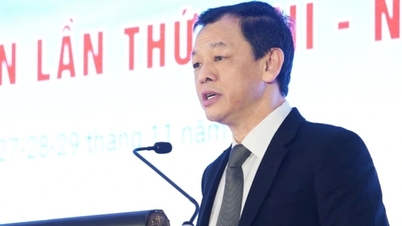

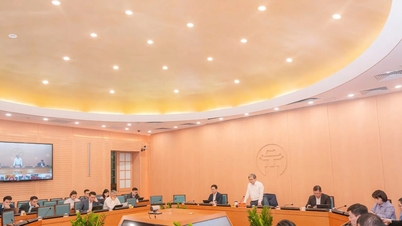



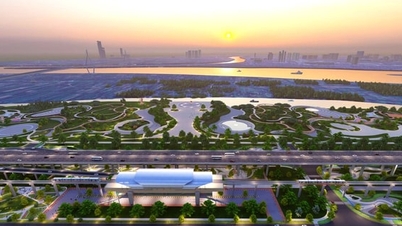


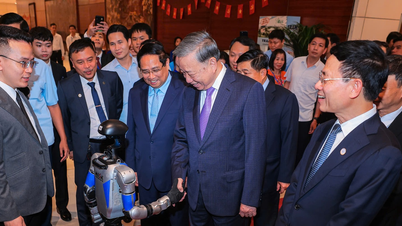





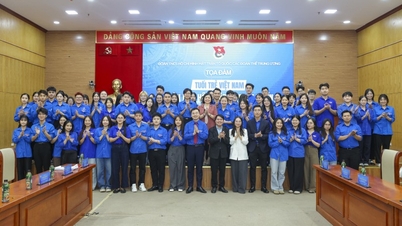





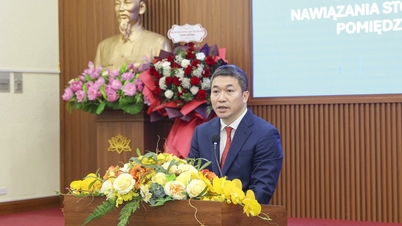
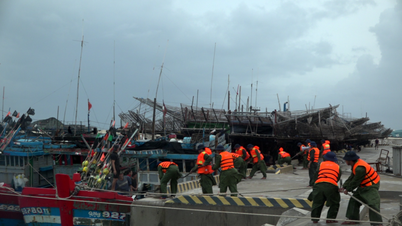
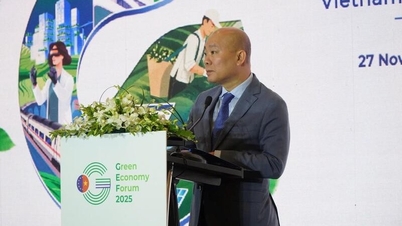
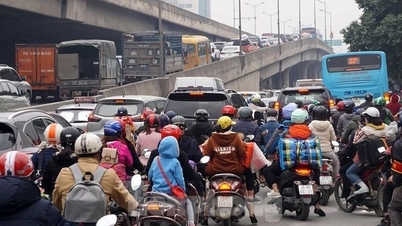

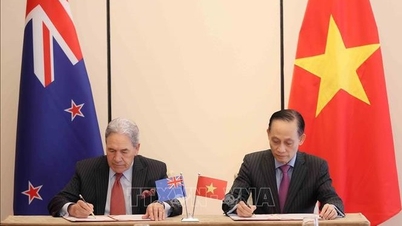


























































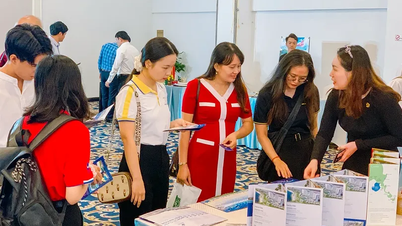
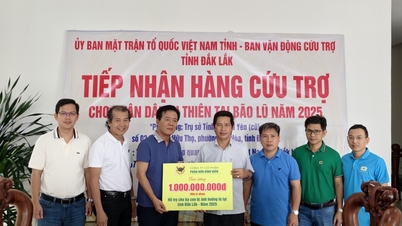


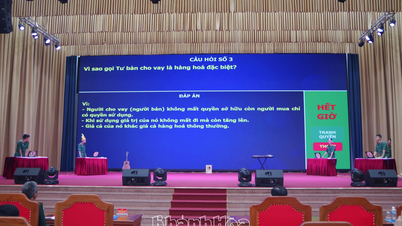









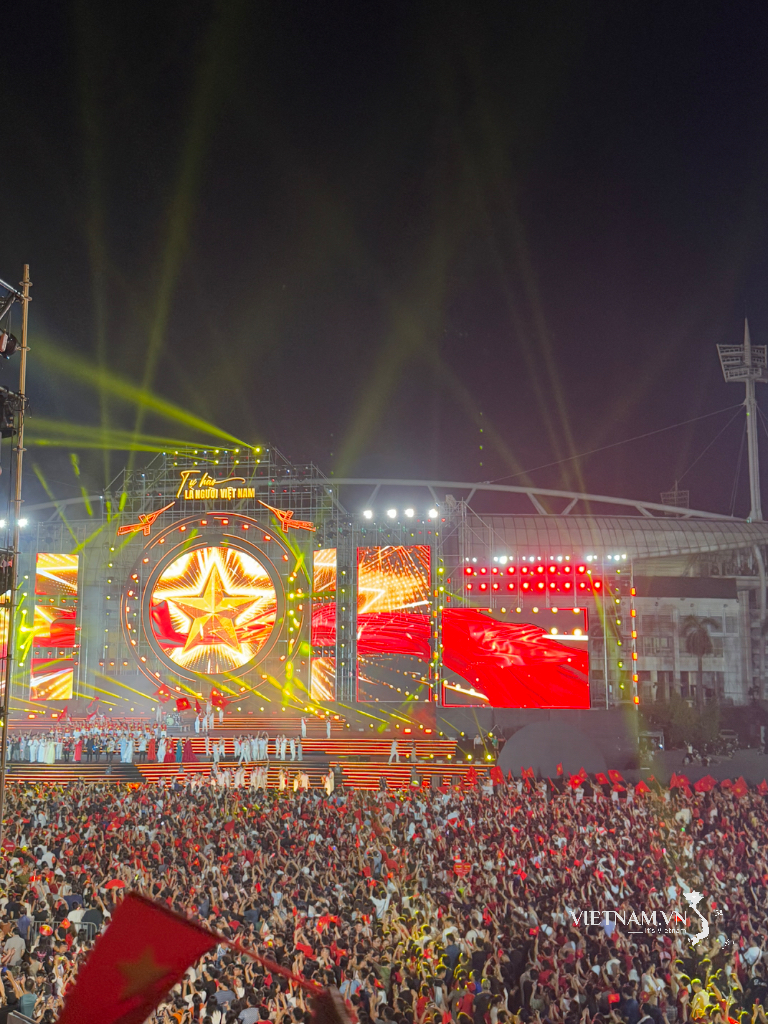



Comment (0)